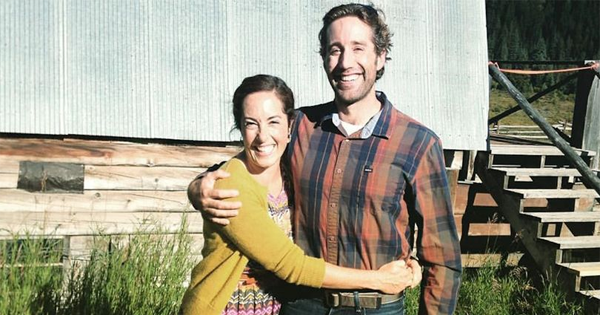Advertisement
Back when Katy VanNostrand was a 22-year-old college student in Bates College at Lewiston, Maine, she suffered from her first anaphylactic shock when she was out running with her friend.
She still recalls the moment like it was yesterday. “I was running and suddenly I started to feel really terrible,” she said. “We stopped and I thought I must be really dehydrated or something. I pulled up my shirt and my friend looked at me and said, ‘Oh my gosh.’”
VanNostrand’s entire body was covered with angry, deep red hives. Without her even realizing, her face and lips had swollen. Her eyes were beginning to show the same reaction as well.
The pair rushed to the hospital where doctors were quick to administer medication to stop VanNostrand’s anaphylactic reaction. But they didn’t have a clue as to what might have caused it. Anything from VanNostrand’s lunch to her laundry powder could have caused this reaction to take place.
This incident was what set VanNostrand’s health on a slippery slope. She began to experience more and more of these shocks, until she was averaging about 15 to 20 shocks each year.
No one could diagnose her. For six years, from when VanNostrand was 22 to when she was 28, she went to see “loads of doctors,” but with little success.
VanNostrand had no clue but to live with her allergic reactions and pray that none would ever get to be too severe and cause her death. Around this time, VanNostrand moved with her husband, John, to Carbondale, Illinois. She wanted to make new friends with their new neighbors, so she decided to go the gym with one of them.
After just ten minutes of using the treadmill, VanNostrand’s face began to swell and she had to be rushed to the hospital. There, VanNostrand was referred to a new allergist who was finally able to give her the diagnosis she’d been waiting to hear for the past 12 years.
VanNostrand was allergic to exercise. She had exercise-induced anaphylaxis, which meant that her body triggered an allergic reaction after she was very active, and especially after she’d eaten. VanNostrand has realized that she shouldn’t eat grapes, cranberries, oats, corn, rice, onion, celery, fennel, nuts, or even black pepper because all of these ingredients can make it more likely that her body will go into shock.
Since then, VanNostrand has been ordered to carry an EpiPen around with her wherever she goes, just in case a reaction gets to be so bad that she almost dies.
One instance that VanNostrand has etched in her mind is one where she knew, she nearly died because she’d gone out on a run alone.
“Back in August 2011… My husband and I lived in Alaska and I had run for about an hour out on this trail, when I started having a reaction,” she recalled. “There was no one around… My face was swelling and I was struggling to breathe, but I was just about able to drive myself to an emergency room. It was very scary.”
Now, though VanNostrand’s allergies are as strong as ever, she’s determined to continue living her life as normally as she can. Anything from walking her dog or even vigorous sex with her husband can still trigger a reaction, but she’s since learned how to weather her reactions.
VanNostrand had always been an avid runner and now that she’s learned more about her health and condition, she’s been able to continue exercising and even sign herself up for a couple marathons.
It took her three tries to finally do so.

“I completed my first successful marathon in November 2016. I signed up for three, but couldn’t run in them because of reactions a few days before. If I have one [reaction], I’m more likely to have another one soon after,” she explained.
“Finally completing a marathon was a lot of work,” she admitted, “but it was awesome.”
Now, VanNostrand has finally learned how to handle her allergies and has reduced the number of shocks she suffers each year from 15 to 20, to only about 4 to 6 each year.
“You can never control it 100 per cent,” VanNostrand said a little regretfully, but she looks forward to continue furthering her understanding of her allergy and how much she can exercise as she continues to push herself forward in the future.




